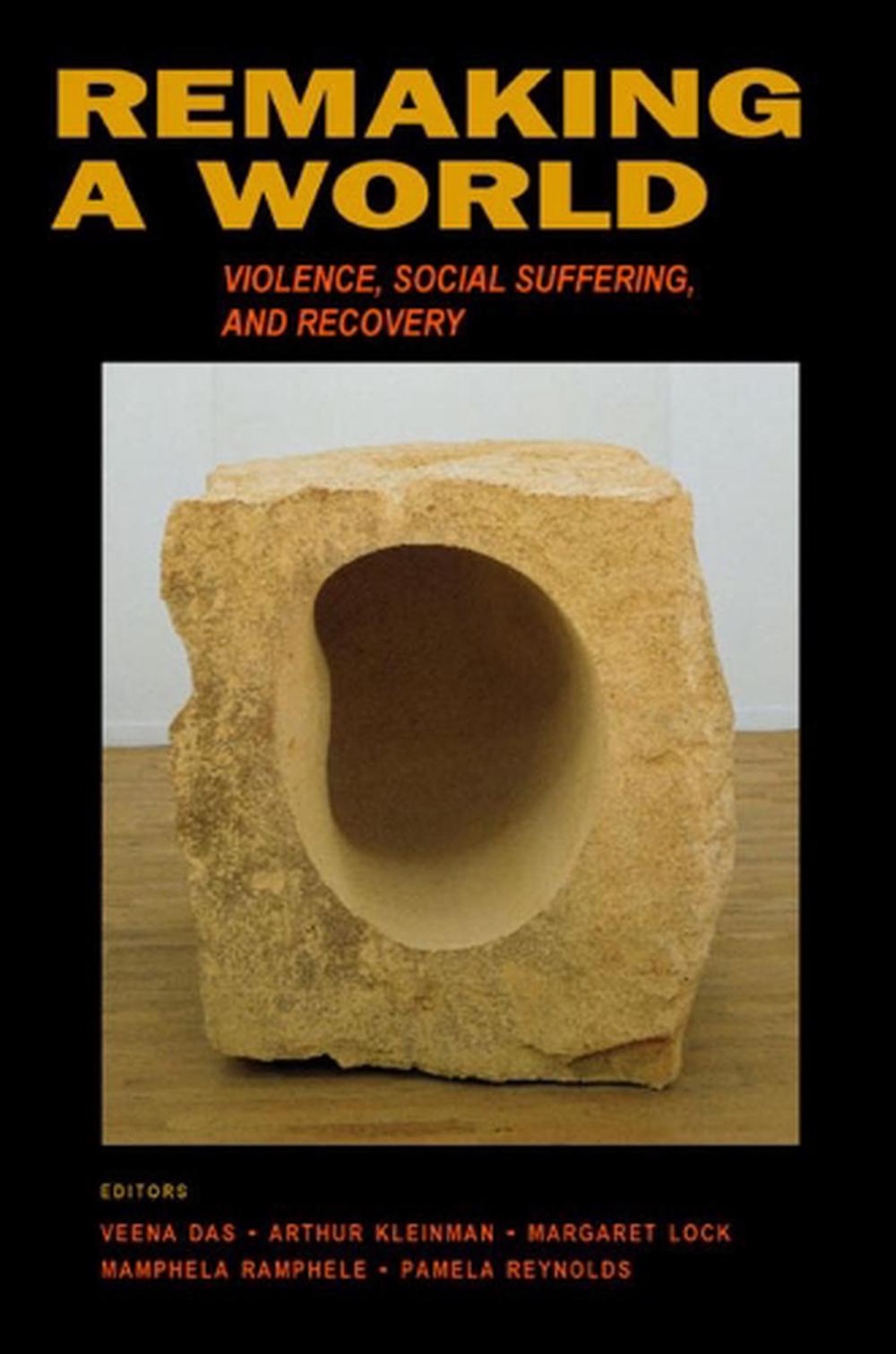
When you click on links to various merchants on this site and make a purchase, this can result in this site earning a commission. Affiliate programs and affiliations include, but are not limited to, the eBay Partner Network.
Remaking a World: Violence, Social Suffering, and Recovery by Pamela Reynolds (E

- Item No : 156816784436
- Condition : Brand New
- Brand : No brand Info
- Seller : the_nile
- Current Bid : US $44.83
-
* Item Description
-
The Nile on eBay

Remaking a World
by Pamela Reynolds, Veena Das, Arthur Kleinman, Mamphela Ramphele, Margaret M. Lock
This third volume on social suffering, violence and recovery explores the ways communities "cope" with traumatic and other more insidious forms of violence, addressing the effects of violence at the level of local worlds, interpersonal relations, and individual lives.
FORMAT
PaperbackLANGUAGE
EnglishCONDITION
Brand New
Publisher Description
Remaking a World completes a triptych of volumes on social suffering, violence, and recovery. Social Suffering, the first volume, deals with sources and major forms of social adversity, with an emphasis on political violence. The second, Violence and Subjectivity, contains graphic accounts of how collective experience of violence can alter individual subjectivity. This third volume explores the ways communities "cope" with-endure, work through, break apart under, transcend-traumatic and other more insidious forms of violence, addressing the effects of violence at the level of local worlds, interpersonal relations, and individual lives. The authors highlight the complex relationship between recognition of suffering in the public sphere and experienced suffering in people's everyday lives. Rich in local detail, the book's comparative ethnographies bring out both the recalcitrance of tragedy and the meaning of healing in attempts to remake the world.
Flap
"The ethnographic studies in this volume are outstanding, and together offer a brilliant mix of materials for throwing light on the representation of violence and suffering in the public sphere. Das and Kleinman introduce the collection with an elegant and deeply insightful set of theoretical reflections on narrative, voice, and social suffering."--Kenneth M. George, author of Showing Signs of Violence
Author Biography
Veena Das is A. Krieger-Eisenhower Professor of Anthropology at Johns Hopkins University. Arthur Kleinman is Maude and Lillian Presley Professor of Medical Anthropology at the Harvard Medical School. Margaret Lock is Professor of Social Studies of Medicine at McGill University. Mamphela Ramphele is Managing Director of the World Bank and former Vice Chancellor of the University of Cape Town, where Pamela Reynolds chairs the Department of Social Anthropology. In other combinations, these five are also the editors of Social Suffering (California, 1997) and Violence and Subjectivity (California, 2000).
Table of Contents
Acknowledgments Introduction Veena Das and Arthur Kleinman Marginality, Suffering, and Community: The Politics of Collective Experience and Empowerment in Thailand Komatra Chuengsatiansup Reimagining Aboriginality: An Indigenous People's Response to Social Suffering Naomi Adelson The Bomb's Womb? Women and the A-Bomb Maya Todeschini Spirit Possessions and Avenging Ghosts: Stories of Supernatural Activity as Narratives of Terror and Mechanisms of Coping and Remembering Sasanka Perera Boundaries, Names, Alterities: A Case Study of a "Communal Riot" in Dharavi, Bombay Deepak Mehta and Roma Chatterji Speech and Silence: Women's Testimony in the First Five Weeks of Public Hearings of the South African Truth and Reconciliation Commission Fiona C. Ross Contributors: Naomi Adelson Roma Chatterji Komatra Chuengsatiansup Veena Das Arthur Kleinman Deepak Mehta Sasanka Perera Fiona C. Ross Maya Todeschini Index
Review
"The ethnographic studies in this volume are outstanding, and together offer a brilliant mix of materials for throwing light on the representation of violence and suffering in the public sphere. Das and Kleinman introduce the collection with an elegant and deeply insightful set of theoretical reflections on narrative, voice, and social suffering." - Kenneth M. George, author of Showing Signs of Violence"
Long Description
Remaking a World completes a triptych of volumes on social suffering, violence, and recovery. Social Suffering, the first volume, deals with sources and major forms of social adversity, with an emphasis on political violence. The second, Violence and Subjectivity, contains graphic accounts of how collective experience of violence can alter individual subjectivity. This third volume explores the ways communities "cope" with--endure, work through, break apart under, transcend--traumatic and other more insidious forms of violence, addressing the effects of violence at the level of local worlds, interpersonal relations, and individual lives. The authors highlight the complex relationship between recognition of suffering in the public sphere and experienced suffering in people's everyday lives. Rich in local detail, the book's comparative ethnographies bring out both the recalcitrance of tragedy and the meaning of healing in attempts to remake the world.
Details
ISBN0520223306Short Title REMAKING A WORLDPublisher University of California PressLanguage EnglishISBN-10 0520223306ISBN-13 9780520223301Media BookFormat PaperbackDEWEY 303.6Year 2001Author Margaret M. LockImprint University of California PressCountry of Publication United StatesIllustrations 2 tablesEdition 1stPlace of Publication BerkerleyEdited by Pamela ReynoldsSubtitle Violence, Social Suffering, and RecoveryDOI 10.1604/9780520223301UK Release Date 2001-06-04AU Release Date 2001-06-04NZ Release Date 2001-06-04US Release Date 2001-06-04Pages 302Publication Date 2001-06-04Audience Professional & Vocational


-
- The Lost Super Foods
- $ 37.00
- The Self-Sufficient Backyard
- $ 37.00
- A Navy Seals BUG IN GUIDE
- $ 39.00
- Childrens Books Phonics Lot 60
- $ 34.99
















